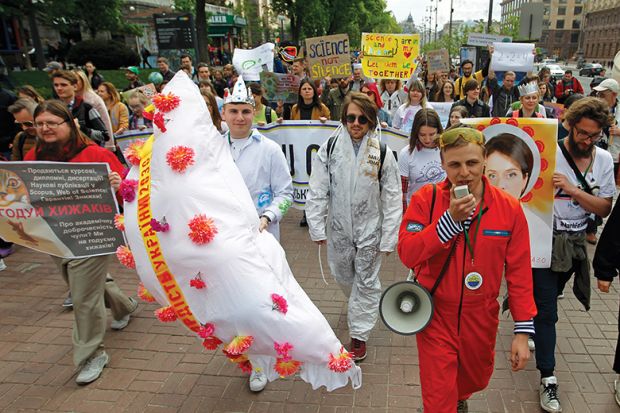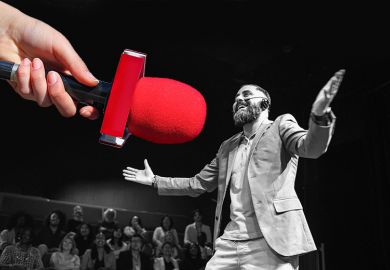“Far too many” scientists have strayed into “policy advocacy” over the course of the Covid pandemic, and even in other areas such as climate change they should be “very cautious” about crossing into such territory, a leading statistician said.
In an interview to open Times Higher Education’s Festival of Data, Sir David Spiegelhalter said that there “absolutely must be scientific advice” and that academics had made an “incredibly valuable” contribution to debates on Covid through the presentation of evidence and modelling scenarios.
However, the role of expertise in the media had not been an “unalloyed success”, according to the chair of the University of Cambridge’s Winton Centre for Risk and Evidence Communication.
Stressing that it was his own “very personal attitude”, Sir David said: “I feel my job – as an expert – is to try to explain things, to raise the level of the argument, so that the people can actually get to what’s important in the discussion instead of being misled by silly numbers being used wrongly.
“My role is not to say what the policy should be. I’m a statistician, how do I know what policy should be when there’s so many things to be taken into account when you decide on a policy?
“However, I think far too many scientists [and] experts have been prepared to say: ‘Well, here is what the science says and therefore this is what should be done.’ I just don’t feel that’s appropriate unless somehow you switch hats and say ‘I’ve now moved…to [being] a member of the public who has opinions.’”
Sir David added that this “strongly” held view that scientists should “inform rather than persuade” would probably also apply to other major policy challenges, such as climate change.
“Obviously many people working in that area will feel rather strongly about what should be done, but I do think again that what I said before kind of carries over,” Sir David said.
“People should be very cautious…of stepping over that line from their scientific expertise towards policy advocacy. I think [you must be] very, very careful about that, you are changing your role and that should be made extremely clear in any communication.”
However, the science communicator, who regularly appears on television to explain key concepts around statistics and risk and also has an upcoming book delving into Covid data, added that one of the UK government’s key mantras throughout the pandemic – to “follow the science” – was not helpful.
“The science doesn’t tell you what to do, so how can you ever follow the science? [The science] is some sort of rather imperfect guide making comments about what might happen, perhaps, but it’s not up front leading,” said Sir David, who is also a non-executive director of the UK Statistics Authority, which oversees the work of the Office for National Statistics.
“And also, how can [following the science] be true when apparently the same science produces dramatically different opinions among scientists about what should be done? They can’t all be right.
“So I think that terrible phrase…gives the wrong impression of what science contributes [to the debate]” and also “encourages the image that ‘Oh well, if I know the science, I know what to do.’”
Also in the interview, Sir David did say that the pandemic had helped foster much greater data literacy among the media and public – despite the occasional “horrific” misuse of statistics – something he hoped would carry forward to other challenges such as climate change.
“I hope that the added sophistication…[on] communication and data will also carry over into climate [debates] and other things so people can perhaps get a better understanding of uncertain projections of scenarios,” he said.
POSTSCRIPT:
Print headline: Stick to science, says statistician
Register to continue
Why register?
- Registration is free and only takes a moment
- Once registered, you can read 3 articles a month
- Sign up for our newsletter
Subscribe
Or subscribe for unlimited access to:
- Unlimited access to news, views, insights & reviews
- Digital editions
- Digital access to THE’s university and college rankings analysis
Already registered or a current subscriber?






